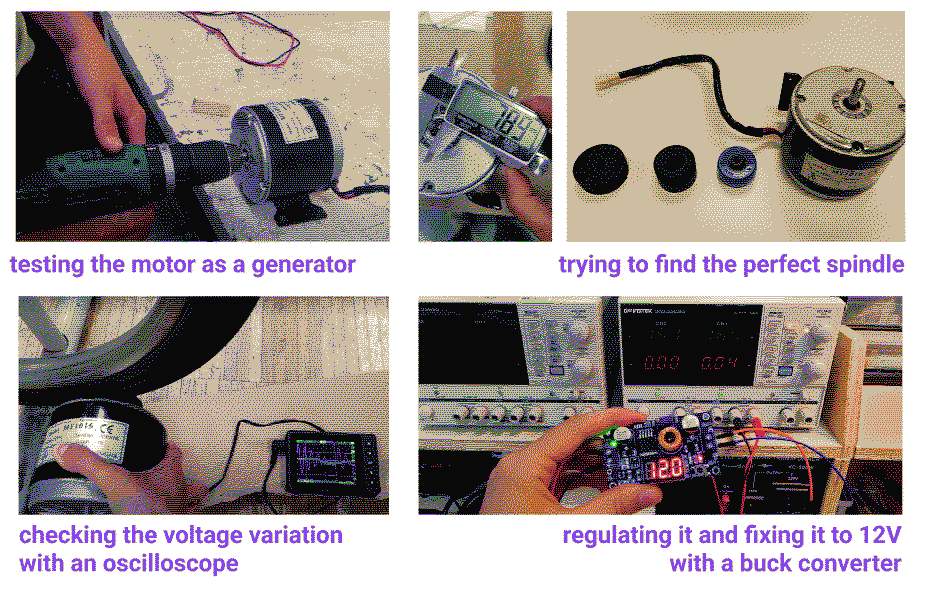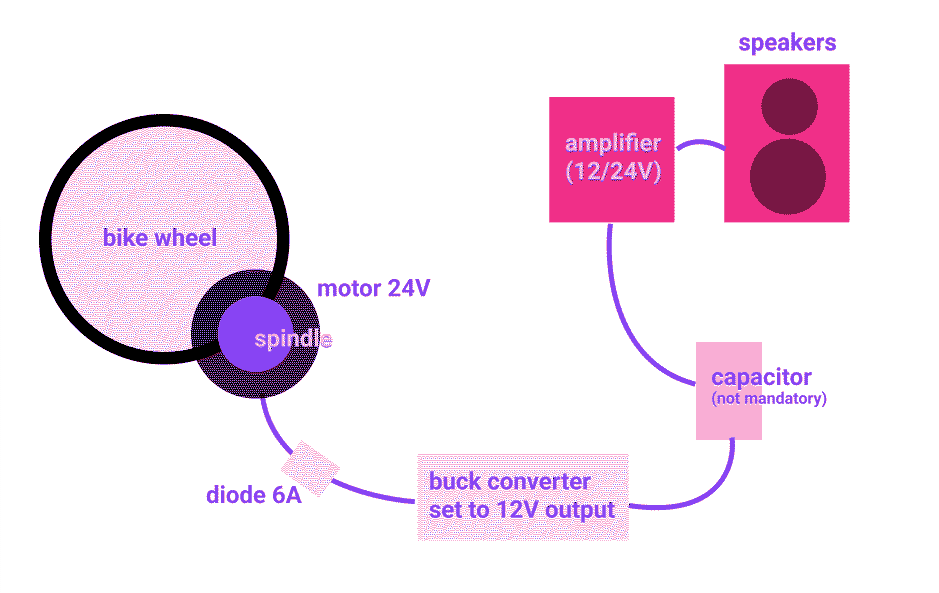making slow devices
fab academy micro challenge #4
For this last challenge, I teamed up with our Slow Lab crew Gerda and Paula B. We decided to take advantage of this last challenge to make devices that we would need for MDEFest as well as to experiment with techniques we didn't know before.
The different things we wanted to do were: bike generators (mobile and home), experiment with the paste printer to make a clay bottle cooler, make a stand that rotates following the sun for our solar ovens or other devices. We also wanted -if we had enough time- to collect data via sensors (for example temperature) to be able to have graphs to analyze the efficiency of the devices we create.
I wanted to work on the home bike generator as we want to have it for MDEFest, also as I had been working on electronics for he last 2 challenges I didn't want to focus on this for this time. I also wanted to test the 3D paste printer so I worked on the creation of a clay bottle cooler.
clay wine cooler
I am interested in the old technique of cooling using the principle of evaporation. This is basically how botijos or zeer pots work for example. I experimented it using a clay pot in another pot with sand in between. You have to wet the sand and as it evaporates with the heat through the pores of the clay, the inside cools down. As I wanted to try the 3D paste printer, I decided to make a simple shape of a cylinder to make a wine bottle cooler so we could use it for our final event during MDEFest as we will show different low tech methods. The details of the steps I followed are all documented in the git repo of the challenge here.
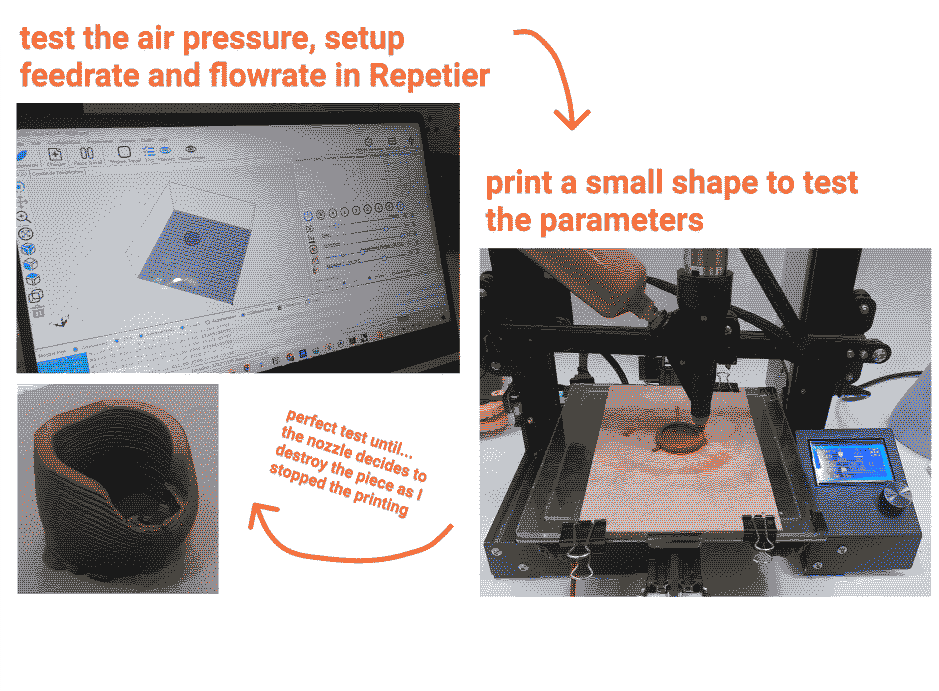
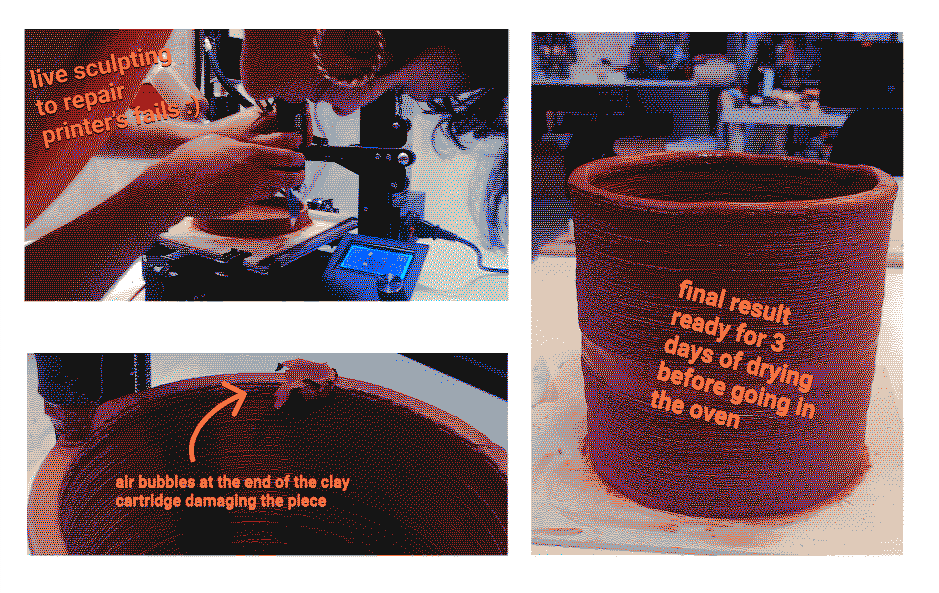
home bike generator
For the bike generator, it was kind of a challenge to manage to have it done this week. For our MDEFest even we are collaborating with Kris from Low Tech Magazine and he made one that we are planning to use during the event to play vinyles on a turntable. We liked the idea of playing vinyles because we thought that when the "bikers" slow down, the music wouldn't stop but just go slower. As we had difficulties planning the tests before the event, last Friday we decided we would build one so we can do all our tests at Iaac. So between last Friday and Tuesday the first day of the challenge we managed to collect the main "components" we needed: a vintage home bike and a brushed motor working on 12 and 24V. Getting all these parts second hand and quikly was almost the most difficult of the project!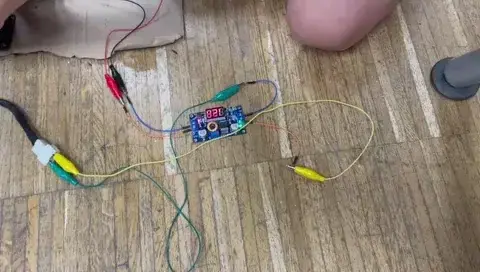
This project didn't include super complex electronics nor a microcontroller but it still made me dive into electronics, relations between voltage, intensity, power. Measure with multimeters, oscilloscopes, test with power supplies... Even though we have seen all these relations between these values many times, actually working on this and making this whole system to power speakers works gave me a much better understanding of it (more than all the water bucket metaphors to which I seem to be "impermeable"!)
The details of the steps I followed are all also documented in the git repo of the challenge here.
